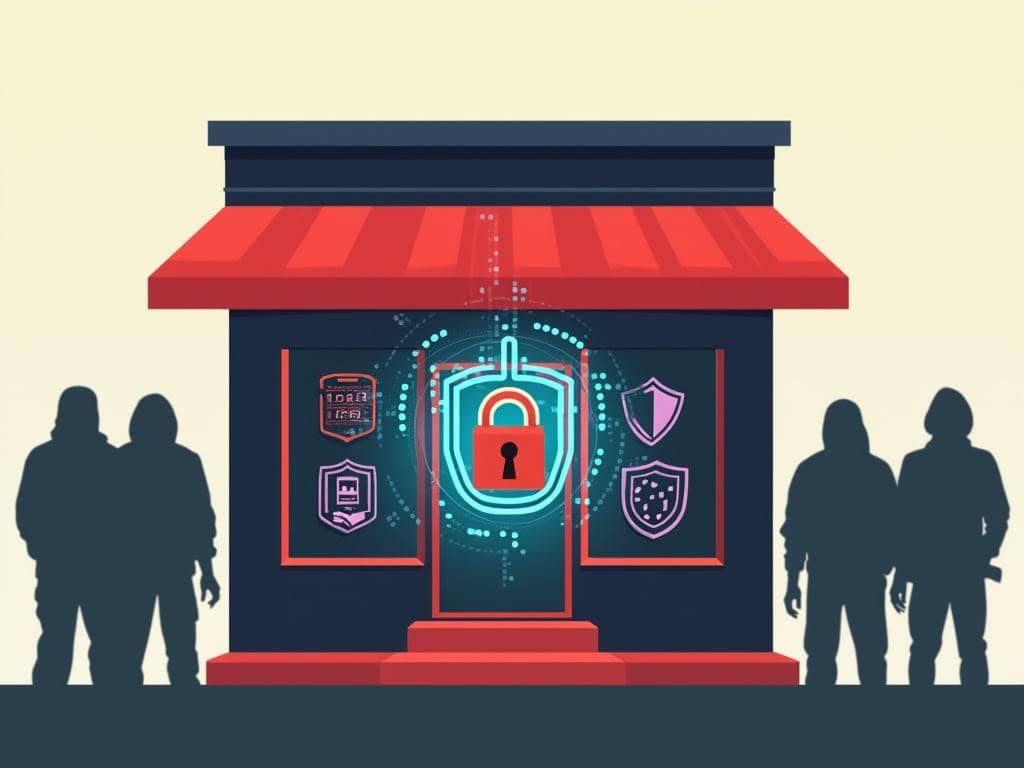Small Businesses and Cybersecurity: Debunking the Myth of Being ‘Too Small to Notice’

Small Businesses Face Rising Cybersecurity Threats: The Dangerous Myth of Being 'Too Small to Notice'
A growing wave of cyberattacks is targeting small businesses, debunking the dangerous misconception that cybercriminals only pursue large corporations. Recent data shows ransomware appears in 88% of small business breaches, with companies facing an average of 2,200 incidents daily. According to the Cybersecurity & Infrastructure Security Agency, small businesses remain particularly vulnerable to emerging cyber threats.
Understanding the Small Business Security Landscape
Cybercriminals increasingly target small and medium-sized businesses (SMBs) due to their typically limited security resources. These organizations often operate with minimal IT staff, outdated security tools, and tight budgets, making them vulnerable to attacks. Implementing effective cybersecurity measures for small businesses has become crucial for survival in today's digital landscape.
The "below the radar" myth has lulled many small business owners into a false sense of security. However, automated scanning tools used by hackers don't discriminate based on company size – they simply search for exposed vulnerabilities and weak security configurations.
Recent examples highlight the devastating impact. In February 2025, Alpha Wellness and Medical Centre in Alpharetta, Georgia, permanently closed following a severe ransomware attack. In Melbourne, MediSecure, a small online prescription provider, went into liquidation after a third-party vendor breach exposed sensitive medical information.
Essential Security Vulnerabilities and Attack Methods
Several predictable weaknesses make small businesses attractive targets:
- Delayed software updates due to operational concerns
- Weak authentication practices, often lacking multi-factor authentication
- Insufficient staff training on cybersecurity awareness
- Unauthorized use of applications (shadow IT)
- Limited monitoring and incident response capabilities
Once attackers gain access, they often deploy ransomware or execute business email compromise schemes. A single compromised account can lead to lateral movement throughout the network, potentially exposing financial systems, customer databases, and intellectual property. Understanding cybersecurity certification requirements for small businesses can help organizations better protect their assets.
Building a Robust Defense Strategy
Small businesses can implement several cost-effective security measures:
- Enable multi-factor authentication across all systems
- Maintain regular software updates and patch management
- Conduct ongoing employee security awareness training
- Implement robust backup solutions with offline copies
- Deploy basic monitoring and threat detection tools
According to Critical Insight, cyberattacks on physician groups alone increased from 2% to 12% of reported breaches between early 2021 and mid-2022, demonstrating the escalating threat to smaller organizations.
Conclusion:
Small businesses must abandon the notion that their size provides protection from cyber threats. Instead, they should focus on implementing basic security measures that make them less attractive targets for cybercriminals.
Practical Applications:
- Use this information to justify cybersecurity investments to stakeholders
- Create a basic security checklist based on the described vulnerabilities
- Develop an incident response plan before facing an attack
The landscape of cybersecurity threats continues to evolve, but with proper preparation and awareness, small businesses can significantly reduce their risk of becoming the next victim.

